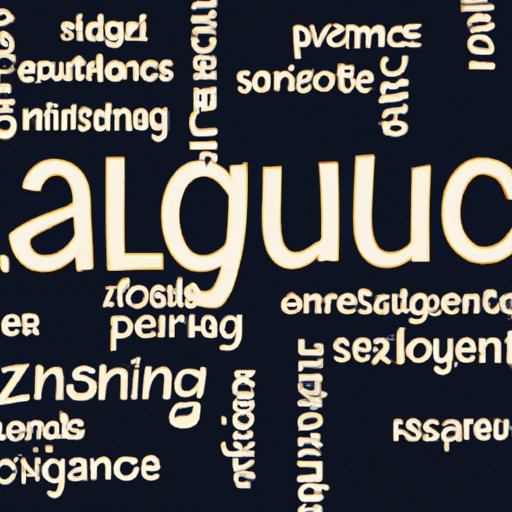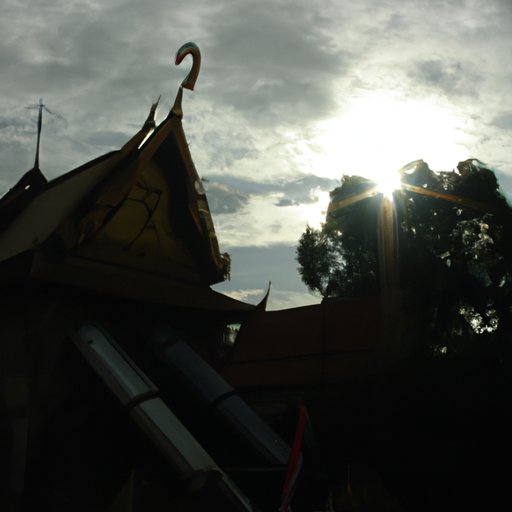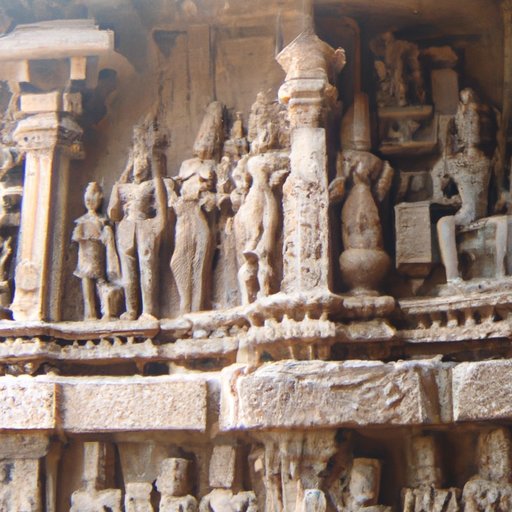Introduction
Culture is a complex concept to define, as it encompasses a wide range of elements that can vary drastically from one group to another. In its simplest form, culture refers to the shared values, beliefs, and norms of a particular group of people. From language and customs to art and religion, there are many facets of culture that help to define a society. This article will explore how these elements come together to create culture, by examining the influence of history, language, religion, technology, and art.

Examining the Influence of History on Culture
History plays an important role in shaping culture. Historical events often have a lasting impact on the way people think and behave. For example, the legacy of colonialism continues to be felt in many countries around the world. According to the World Bank, “the legacies of colonization and slavery continue to shape economic and political outcomes in many parts of the world today” (2020). The effects of colonialism can be seen in everything from language and education systems to economic structures and social hierarchies. By understanding how historical events have shaped cultural development, we can gain insight into how current cultural norms came to be.

Exploring the Role of Language in Shaping Culture
Language is a powerful tool for expressing culture. It provides a way for people to communicate their values and beliefs. According to linguist Noam Chomsky, “language is not just a means of communication; it is also a means of constructing and transmitting culture” (Chomsky, 1972). Language helps to shape how people interact with each other, and it can also be used to create a sense of identity within a group. For example, many Indigenous communities use their traditional languages to maintain their cultural heritage and pass it down to future generations.

Investigating the Impact of Religion on Cultural Development
Religion has long been a major influence on culture. Different religions have different values and beliefs, which can have a significant impact on the way a society functions. According to sociologist Peter Berger, “religion is not merely a system of beliefs and practices, but a comprehensive vision of reality which profoundly affects the total life of a people” (Berger, 1967). Religion can shape social structures, such as family dynamics and political systems, as well as cultural practices, such as festivals and rituals. By understanding the role of religion in creating culture, we can gain insight into how different cultures have developed over time.
Analyzing the Effects of Technology on Creating New Cultural Norms
Technology has had a profound impact on culture. Technology has changed the way people communicate, making it easier to share information and ideas across vast distances. According to media researcher Henry Jenkins, “technology has enabled us to create new forms of cultural expression” (Jenkins, 2006). Technology has also altered traditional customs, such as how people meet and interact with each other. By examining the effects of technology on culture, we can gain insight into how new norms and values are created.
Investigating the Interplay Between Art and Culture
Art is an important component of culture. Visual arts such as painting and sculpture can reflect cultural values and beliefs. Music and performance arts can also be used to express cultural identity. According to anthropologist Margaret Mead, “art is a form of communication that helps to shape the values and beliefs of a culture” (Mead, 1972). By exploring the interplay between art and culture, we can gain insight into how different societies express themselves and develop shared values.
Conclusion
In conclusion, this article has explored how culture is created. We have examined the influence of history, language, religion, technology, and art on cultural development and expression. By understanding how these elements come together to create culture, we can gain insight into the ways in which different societies have evolved over time. Ultimately, culture is a complex concept that is shaped by a variety of factors, and it is an ever-changing process that is constantly being influenced by the world around us.
(Note: Is this article not meeting your expectations? Do you have knowledge or insights to share? Unlock new opportunities and expand your reach by joining our authors team. Click Registration to join us and share your expertise with our readers.)
